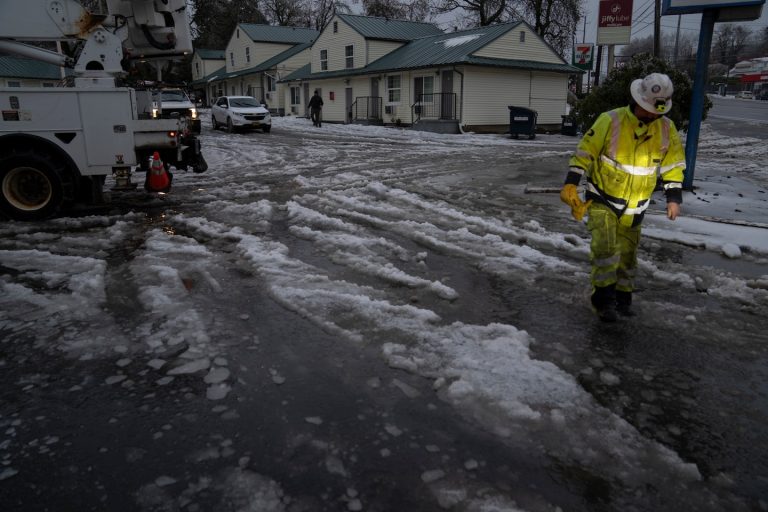In Oregon, at least nine weather-related deaths were recorded in the past week, including an incident in Portland where a young pregnant woman, her teenage brother and her boyfriend were electrocuted after exiting a vehicle that struck a fallen tree branch. And live electrical wires. An infant was rescued from the scene.
In another incident, a tree fell on an RV in Portland, trapping a woman in her 30s inside as the vehicle caught fire. Investigators found that those living in the RV were using an open flame stove to warm themselves. Emergency responders also found a transformer, a power pole and several live wires on top of the vehicle when they arrived, with the nearest fire hydrant frozen. Three others escaped from the RV, and one suffered non-life-threatening injuries.
Much of the contiguous United States was hit by an Arctic blast this month, dropping temperatures to 40 below zero in the northern Plains and prompting at least 30 states to enact some sort of alert for dangerously cold temperatures. The storms wreaked havoc as far south as Texas and Florida, dropping temperatures well below average lows for this time of year and creating the right conditions for a tornado to hit Port St. Lucie, Florida. Map from the National Weather Service It showed heavy snowfall From Tennessee to Maine.
Authorities in those states said winter storms were also linked to deaths in Alabama, Georgia, North Carolina, Nebraska and Wisconsin this month. Additionally, the Associated Press reported weather-related deaths in Kentucky, Washington and Louisiana.
Earlier this month, the Federal Aviation Administration announced to caution On several occasions Storms across the United States are likely to cause flight cancellations and delays, and posted photos of snow-covered airport runways in several parts of the country. Reuters reported that more than 7,600 flights in the United States were delayed on January 12 alone.
Hundreds of thousands of American customers also suffered complete power outages during this month's worst storms, with large parts of the country affected, from Maine to Georgia and beyond.
Temperatures are expected to rise this week by 30 to 40 degrees, melting large swaths of the Ozarks, Southern Plains and South-Central. The northern Plains will see temperatures rise 15 to 20 degrees above normal by Tuesday — but milder weather may eventually give way to cooler temperatures in the coming weeks, depending on several factors, including the development of a polar vortex and a persistent El Niño.
Matthew Capucci, Daniel Wu, Justin McDaniel Ben Brash contributed to this report.

